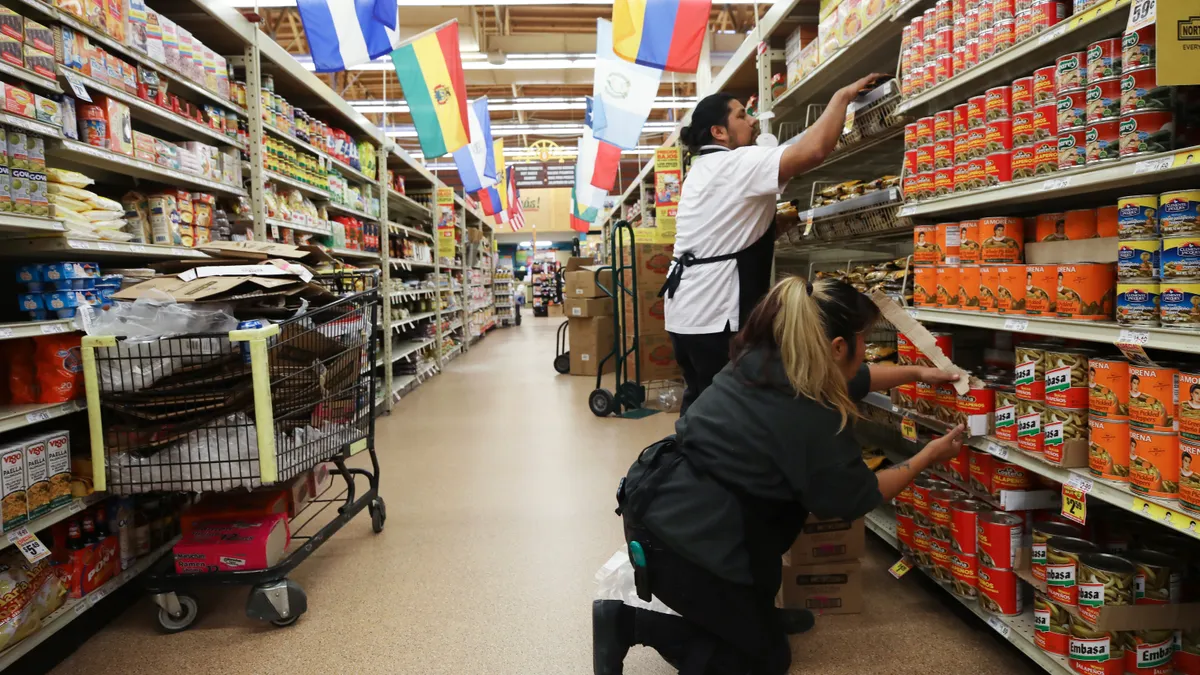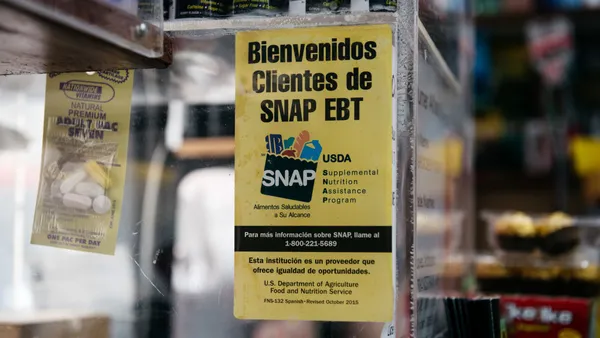Dive Brief:
- Employment at food and beverage stores fell by 7,500 in January, to 3.108 million workers, continuing a decline that began the previous month, according to preliminary data released Friday by the U.S. Bureau of Labor Statistics.
- The drop contrasts with an increase in January of more than 108,000 jobs at restaurants and bars, which came on top of a similar gain for that sector in December, the government reported.
- Grocery industry employment has been eroding despite concerted efforts by food retailers to attract and retain workers.
Dive Insight:
The employment statistics underscore the persistent difficulty grocers have been facing as they look to position themselves as attractive places for people to work.
Food and beverage retailers shed workers in January against a backdrop of surging payrolls across the economic landscape. Overall, employers added 467,000 jobs during the month, a surprisingly large boost that followed the 199,000 positions the economy brought on in December. The White House had been expecting the January jobs report to show only a small increase because of the disruption caused by the fast-spreading omicron COVID-19 variant, CNN reported.
The unemployment rate, meanwhile, has also remained muted. That closely watched data point came in at 4% in January, essentially unchanged from the level recorded in December, the Bureau of Labor Statistics said.
Employment at grocery stores declined in January even as other types of retailers saw their payrolls go up. General merchandise stores added 29,000 jobs, while health and personal care retailers brought on 11,000 positions.
Food retailers have been struggling to hire enough workers to run their stores and other facilities despite a concerted effort by the industry to woo potential employees with higher wages, sign-on bonuses, expanded benefits and other incentives.
The dearth of workers has pushed grocers to look to automation as a way to maintain operations amid the elevated consumer demand many chains have been experiencing since the start of the pandemic. Supermarkets have been adding technology like self-checkout terminals and self-service kiosks to handle functions traditionally taken care of by human workers — and bring an added dose of speed and convenience to shoppers looking to get in and out of stores as quickly as possible.
Labor officials have sought to take advantage of the challenging labor conditions grocers have been facing. When thousands of associates at Kroger's King Soopers chain in Colorado went on strike last month, United Food and Commercial Workers (UFCW) Local 7, the union representing them, said the robust job market put the workers in a strong negotiating position.
"The great resignation is real. Workers are rethinking their relationship with employers, and that's what's happening right now with King Soopers," Kim Cordova, president of UFCW 7, said as the walkout got underway.













